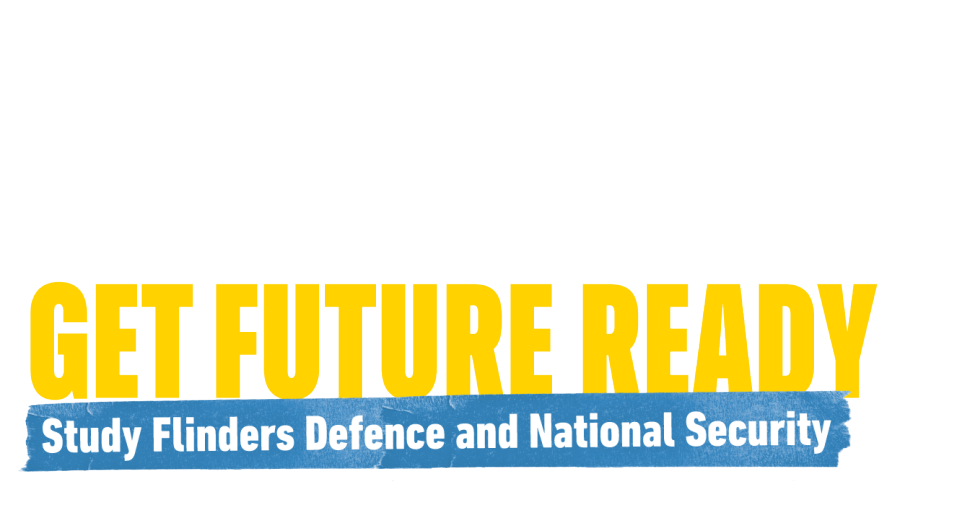Defence Research
Forging powerful partnerships
Today’s research. Defending tomorrow.
From autonomous marine vehicles to advanced additive manufacturing and cybersecurity, the technologies of tomorrow are results from the world class research we do today.
This island continent we call home presents unique challenges for security.
It brings into play land, sea and air technology and puts this technology into situations where second best simply isn't good enough.
Flinders is at the frontline of defence-oriented research and development in myriad ways across our campuses.
Imagine a day very soon when we have unmanned warships patrolling our coastline. We are developing that capability now.
Our robotics team are making new advances that could keep our soldiers out of harm’s way, our fibre optics technology is revolutionising battlefield communications, our engineers are evolving ways to enhance body mechanics to ensure our military personnel are at peak performance levels…we are even looking at making munitions and explosives more stable for longer.
FEARLESS RESEARCH IMPACT
Discover how Flinders is making a difference to our culture, economy, environment, society and world.
Research Strengths
Institute for Nanoscale Science and Technology
Nano research at Flinders is widely recognised for contributions to next generation materials and surfaces that will provide new attributes for the products of the future. With research leaders from physics, chemistry, biology and engineering and core capabilities in carbon based materials (such as graphene and carbon nanotubes), surface science, polymers, membranes and smart /functional coatings, researchers within the Nano Institute have the capabilities to provide a holistic and complete solution to a very wide range of technical challenges for the defence industry.
Key capabilities
- Polymeric coatings including functional / reactive coatings
- Nano- and micro- roughened surfaces
- Easy clean, anti-fouling surfaces
- Super-hydrophobic and hydrophilic coatings
- Anti-reflection and optical property control
- Corrosion resistant coatings for a range of metals
- Highly sensitive and specific molecular and biological sensing
- Nano and fibre reinforced composites
Our data and information science, computer science and mathematics researchers are embracing the rapidly changing technological environment.
We focus on the integration of cybersecurity, machine learning and advanced data analytics to solving important and wide-reaching industry, government, and defence problems.
Our mathematicians and computer scientists are conducting world-leading research in artificial Intelligence, knowledge discovery, medical image processing, neuroscience, and cybersecurity.
Flinders University Institute for Mental Health and Wellbeing
Flinders University Psychology Professor Reg Nixon and his colleagues have engaged in projects working with defence (Australian Defence Force) and related organisations (e.g., Veteran’s and Veteran’s Families Counselling Service) to research and improve clinical training for clinicians who offer services for serving and post-service personnel with posttraumatic stress and associated mental health issues.This has included improved screening and identification of posttraumatic stress, accompanied by delivery of the latest researched therapies for its treatment.
Key capabilities:
- Expert training in latest evidence-based treatments for posttraumatic stress.
- Assessment and evaluation of posttraumatic stress and related mental health issues.
- Researching novel and new psychological interventions for posttraumatic stress.
From ships to aircraft, bridges and pipelines; history has seen numerous catastrophic structural failures, such as the disintegration of the space shuttle Columbia on re-entry due to sustained wing damage, the explosive decompression of China Airlines Flight 611 from undetected metal fatigue and the Esso Longford refinery explosion caused by a brittle fracture of an oil pump. As well as the injuries and death that such events can cause, such failures have major economic impacts.
In many cases, the failure of a component or structure in-service is due to the presence of mechanical damage, such as fatigue cracks for metal or delamination for composite materials. There is, therefore, a need to evaluate the strength and integrity of engineering structures. The non-destructive testing group aims to develop new and existing techniques in order to better detect mechanical damage in components and structure.
Australian Industrial Transformation Institute (AITI)
AITI is a national leader in industry and workplace innovation research, working closely with South Australian manufacturing companies.
Factory of the Future, led by Flinders University, in partnership with BAE Systems Australia, is Australia’s first industrial-scale high value manufacturing research and accelerator facility. Thousands of jobs will be created at a time when employment is critical and about 250 companies will be involved in the facility, benefiting from collaborations with research expertise and integration into domestic and international value chains.
The Factory of the Future will bring together education, industry and government to facilitate the implementation of Industry 4.0, bridging the valley between research, development and innovation to boost the national economy. The foundations for success are already in place at Tonsley Innovation District.
ARC Training Centre for Biofilm Research and Innovation
Biofouling is the accumulation of microorganisms, plants, and animals on surfaces immersed in the ocean. This accumulation process can occur on natural and man-made surfaces and is a major problem for the sustainment of maritime platforms. The accumulation of fouling can cause increased drag on ships, clogged water intakes, and corrosion that will damage surfaces.
The ARC Training Centre for Biofilm Research and Innovation characterises the formation of biofilms on surfaces to better inform the type of fouling to expect under specific environmental conditions.
To combat biofilm formation, various antifouling coatings have been developed to prevent the attachment and growth of marine organisms on maritime platforms.
The development of autonomous underwater vehicles (AUVs) for maritime surveying and surveillance is a growth area particularly in the mineral exploration, fisheries, marine engineering, and military defence sectors. This area of research is largely untapped in Australia and yet offers much scope for multi-disciplinary research. The goal in developing such vehicles is to create self-contained, robust, intelligent decision-making robots that can be built at affordable costs. We are working on the development of a 3m vehicle as part of a CSIRO funded Flagship program. The AUV will serve as a test bed for evaluating various strategies including: guidance control, navigation, propulsion, video/sonar imaging, and communications. The primary application of this vehicle is for bathymetric surveying, pipeline tracking, and seabed assessment. Other immediate application areas include: mine detection, harbour security, pollution monitoring etc.
Torrens Resilience Initiative, Flinders University
The Torrens Resilience Initiative was established to improve the capacity of organisations and societies to respond to disruptive challenges which have the potential to overwhelm local disaster management capabilities and plans. TRI are a national and international centre of excellence through the development of advanced thinking in the concept of resilience. Our mission is to assist Federal and State Governments, emergency services, organisations and civil society to enhance their leadership and management capabilities, and thus enable them to prepare for, and respond better to, disruptive challenges.
Key capabilities:
- Conduct evidence-based research enabling informed decisions to be taken on policy, and to assist the development of resilient systems, procedures and practice.
- Provide information, management tools and specialist technical advice.
- Increase knowledge and skills of individual leaders and managers through education, training and resilience-focused workshops and seminars.
- Achieve foreign policy and humanitarian objectives by developing resilient national capacities in the countries of South East Asia and the Pacific Rim in collaboration with relevant partners.
- Research, development, education and networks concerning issues of resilience related to disaster, humanitarian crisis, health security and deliberate events (including terrorism), including preparedness, response and recovery
Brain and Cognition Laboratory
The Brain and Cognition Laboratory has a broad interest in cognitive processes, how they operate and how they might be represented in the brain. Much of this research is centred on two issues. The first is laterality research, which investigates left/right asymmetries in the brain, cognition and behaviour. The second main theme of research investigates the cognitive processes associated with spatial attention and how these are represented in the brain. A recurrent theme of this research has been asymmetries in attention, the limitations of attention and how we are distracted. The laboratory also investigates cross-modal processing (touch/vision/hearing) and timing.
Key capabilities:
- Attentional distraction
- Cross modal perception
- Timing judgements.
Flinders Digital Health Research Centre (FDHRC)
Data security, information security, network security, mobile security and cyber warfare are key issues to the protection and resilience of information systems. The complexity of addressing these issues in health, across multiple providers, software, computer platforms and clinical pathways means that an in-depth understanding of the environment of computing and healthcare is required. Flinders School of Computer Science, Engineering and Mathematics and FDHRC have a range of expertise in the generic application of data security, information security and cyber warfare, as well as extensive specific skills in health information security, the security of data at rest and in transit, secure message delivery (SMD), and security visualisation and modelling using contemporary research techniques.
In addition, new issues have arisen from embedded and stand-alone health software, adversely impacting patient safety. FDHRC have experience in the impact assessment of technology and software on patient safety, as well as the development and testing of the safety of health software secure messaging , international standards and frameworks for security of health data, patient e-safety, and human-computer interaction using international standards.
Centre for Defence Engineering Research and Training
The Centre for Defence Engineering Research and Training (CDERT) is bringing its research strengths to bear, to develop world-leading academic knowledge and capability in key disciplines that make up defence engineering and technology. Working together with partners in the defence industry, both in Australia and in allied nations, CDERT is focused on the provision of research, training and consultancy excellence.
CDERT is involved in a range of research areas including the development of autonomous surface and underwater vehicles, mine counter-measures and launch and recovery of autonomous marine vehicles. The Centre is home to a $5 million National collaboration between the Department of Defence and Flinders University on EW research and training. Additional research strengths within the Centre include bioinspired imaging, AI/ML, human machine teaming, human factors and digital technologies.
Our strong collaboration with the defence industry, coupled with our research strengths in key disciplines and our unique research facilities, support our capability in conducting world-class research and in achieving impact.
Our researchers
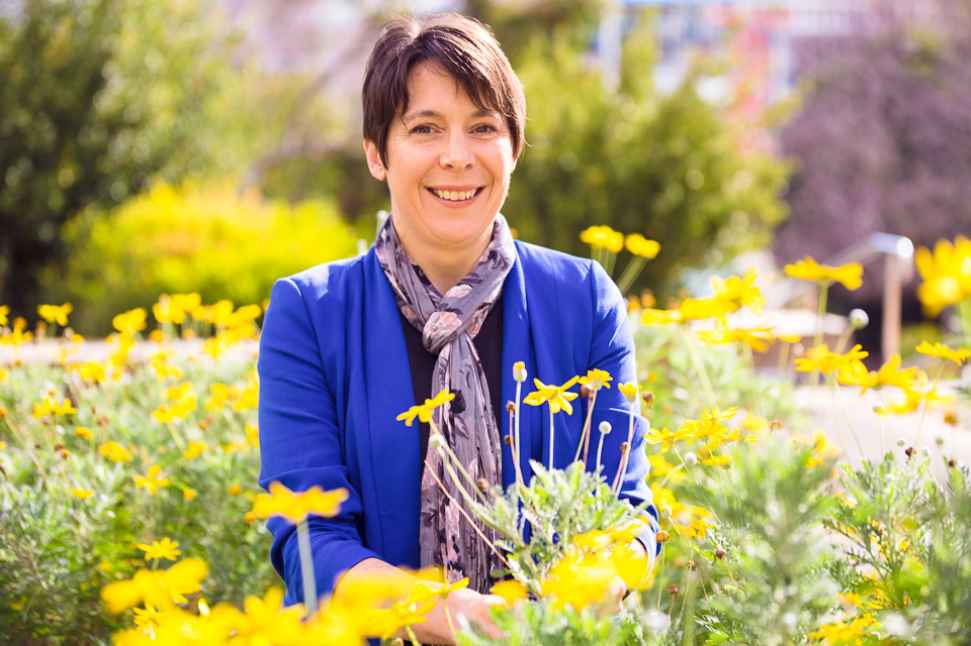
“We are studying the stabilising materials to ensure they will remain stable for a long period of time. We want to avoid magazines of explosives going off when we don’t want them to – for obvious reasons,” Professor Claire Lenehan.
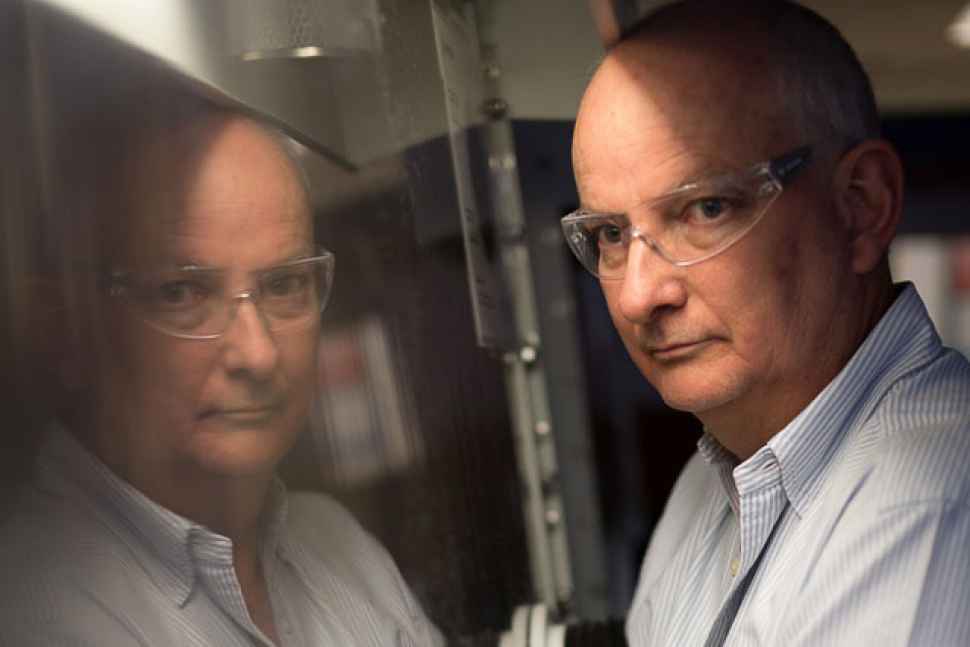
“We are on the cusp of nanotechnology being useful and used right across the economy – it’s very exciting.” Professor David Lewis.
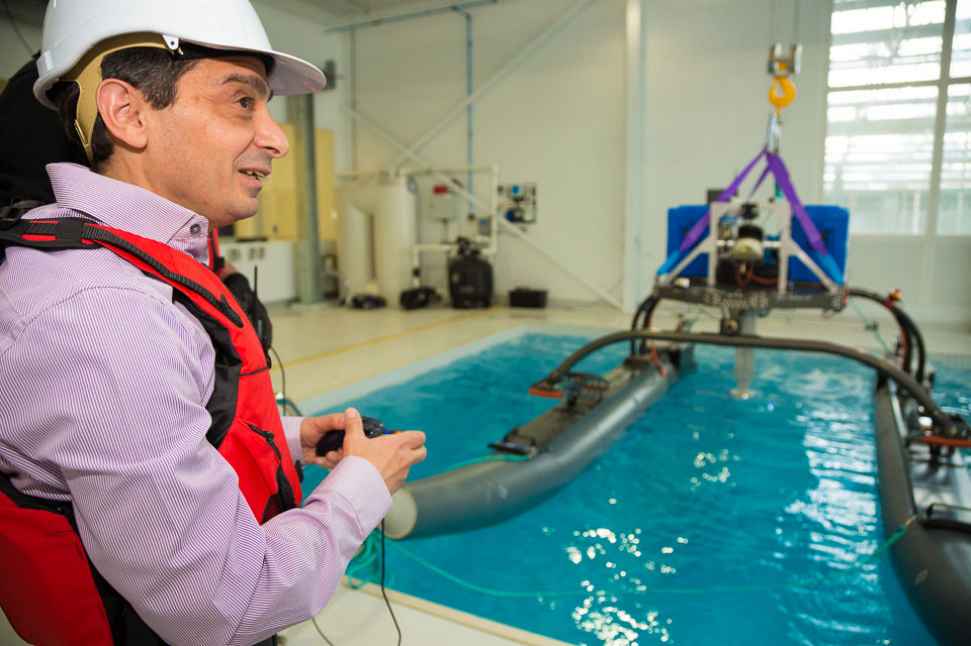
“Autonomous boats are better placed to carry out long, precise and often tedious marine searches and surveys than boats driven by humans,” Professor Karl Sammut.
Partnerships



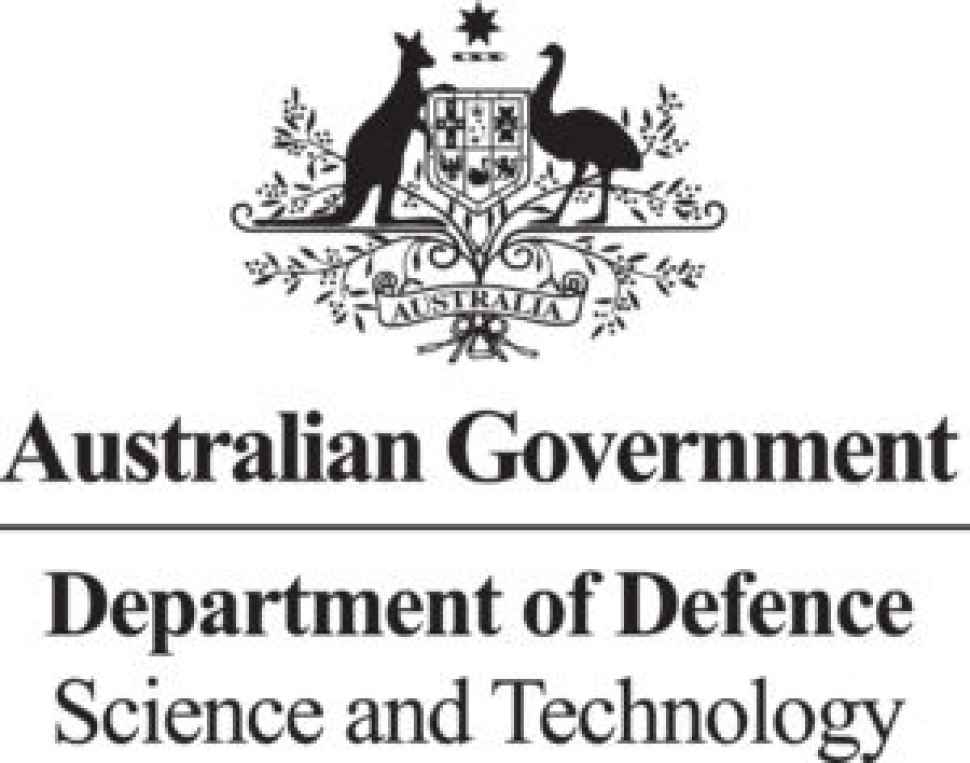















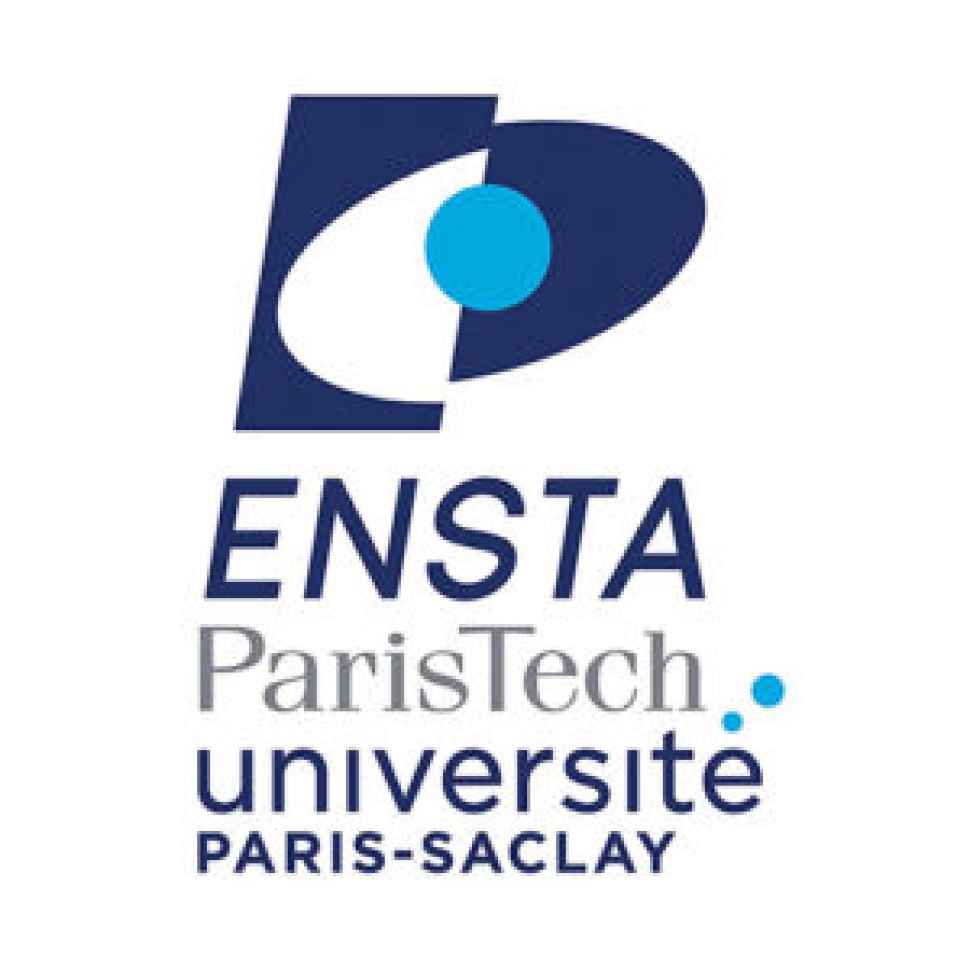
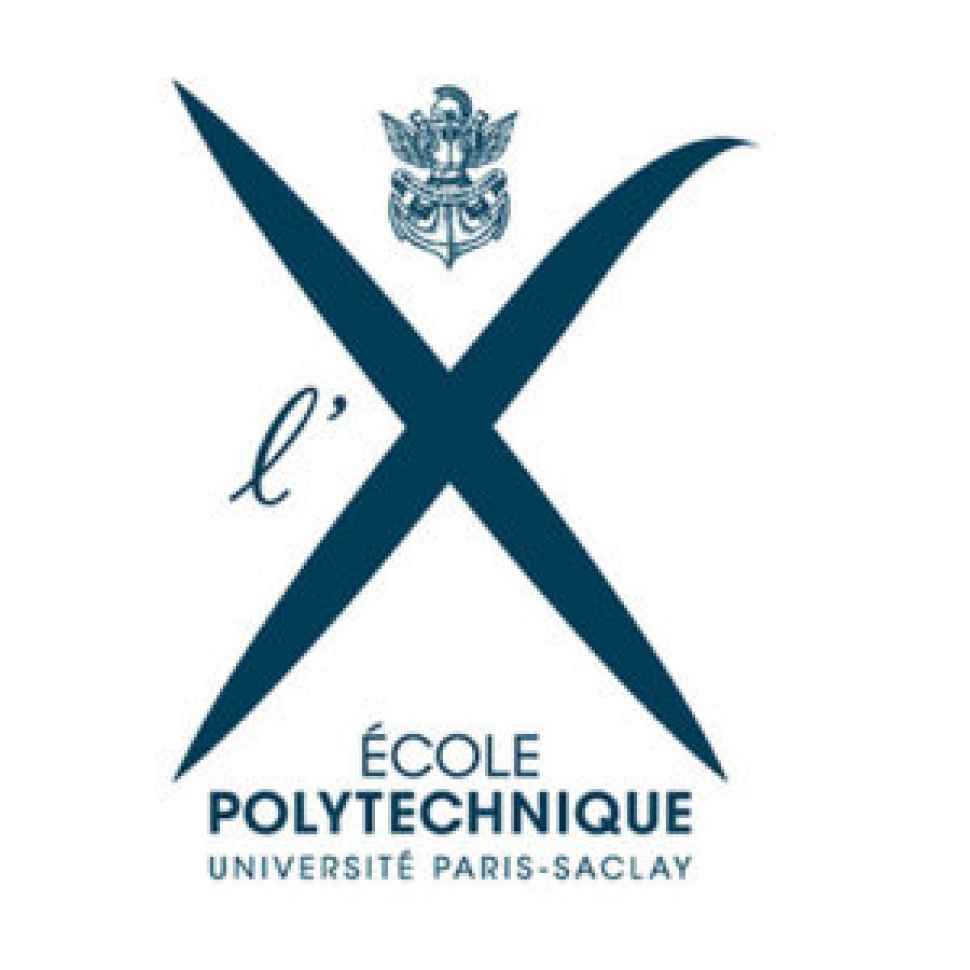

Collaborate with us
Contact Flinders University today to see how we can build a powerful research partnership with your organisation.
Tony Kyriacou
Defence Partnerships Director
Email: tony.kyriacou@flinders.edu.au | Phone: +61 8 8201 5615 | Mobile: +61 411 132 690
![]()
Sturt Rd, Bedford Park
South Australia 5042
South Australia | Northern Territory
Global | Online
CRICOS Provider: 00114A TEQSA Provider ID: PRV12097 TEQSA category: Australian University
